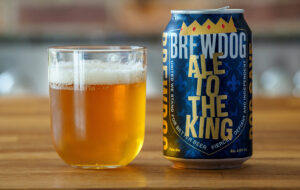BrewDog – Clever Marketing or the Beginning of the End?
You may have seen in recent media news a series of chaotic marketing by brewing giant BrewDog. Our Media Planner/Buyer Kat has taken a deep dive into these to work out if they’re an unfortunate series of silly mistakes, or if the brand is using their ‘disruptive’ positioning to fulfil the motto any publicity is good publicity…
The costliest feat ended with the chief executive, James Watt, having to personally fork out £470,000 after rolling out a misleading solid gold can promotion. The Willy-Wonka inspired competition promised winners the chance to win £15,000 should they find one of 50 “solid gold beer cans” hidden in Punk IPA cases throughout 2021. It turned out the cans were in fact just plated gold, not the solid gold treasures consumers had been led to believe. Watt subsequently made a lengthy post on LinkedIn, stating “In my enthusiasm, I had misunderstood the process of how they were made…”. A media storm ensued and resulted in James Watt personally compensating each of the 50 winners and the brand name taking a bashing, being labeled “dishonest and disingenuous”.
The gold can debacle wasn’t the only media storm the punk, challenger brand has caused recently. At the beginning of the Russia and Ukraine war, BrewDog launched two products simultaneously: United for Ukraine beer and a range called Sad AF – a case of tone-deaf, bad planning or a deliberate, considered decision? During the 2022 World Cup, BrewDog launched a campaign of ‘anti-sponsorship’ OOH adverts. The campaign aimed to call out the human rights abuse in Qatar, the host nation. Many agreed with the campaign, however, the mistake came when BrewDog showed the entirety of the World Cup in every one of their bars, ultimately profiting off the event – again this caused the brand to be labeled disingenuous. Moving away from marketing errors, in early 2021, an open letter to the top dogs (pardon the pun) of BrewDog from their employees became public, and cited “genuine safety concerns”, labelling the brand as “a cult of personality”. A poll carried out by The Drum showed that over half of consumers surveyed said this letter negatively affected their opinion on the brand.
But, has any of this tarnished overall public opinion on the brand; is there a Ratner moment on the horizon? Since 2019, the brand has rattled through a series of PR agencies, nearly one a year. However, strategists have predicted that “true believers in zealot brands will overlook what they do, to focus on the quality of their product”. A survey by The Drum showed some ambivalence among consumers, with 36% saying none of this affected their purchase intention with the brand and only 18% saying they would be less likely to purchase. With the brand reporting a 20.5% growth in turnover in 2021, it seems they are untouchable. It appears their marketing has become a self-fulfilling prophecy and in the short-term, consumers dislike their choices but long-term, are willing to look past them. Cheers to that!
Image: Brett Jordan / Pixels

